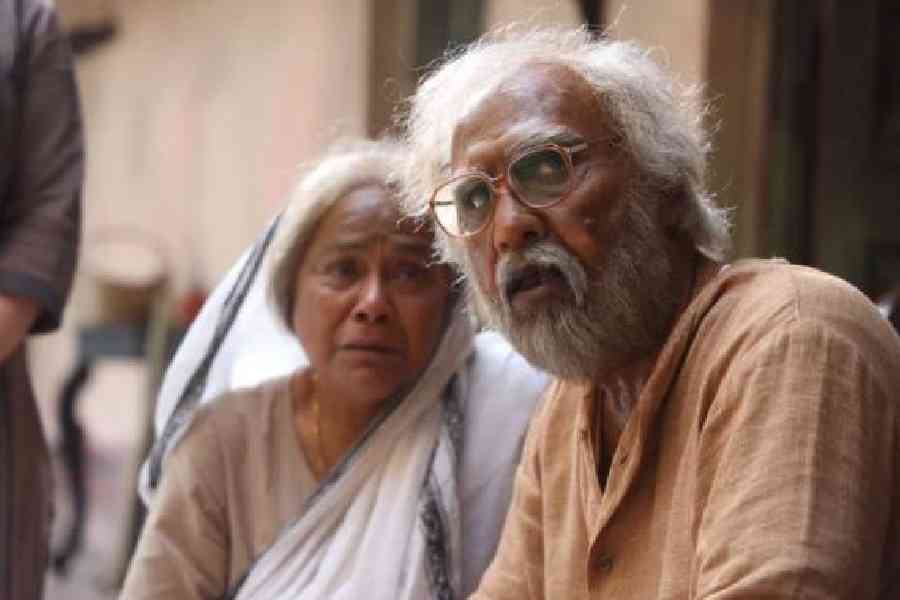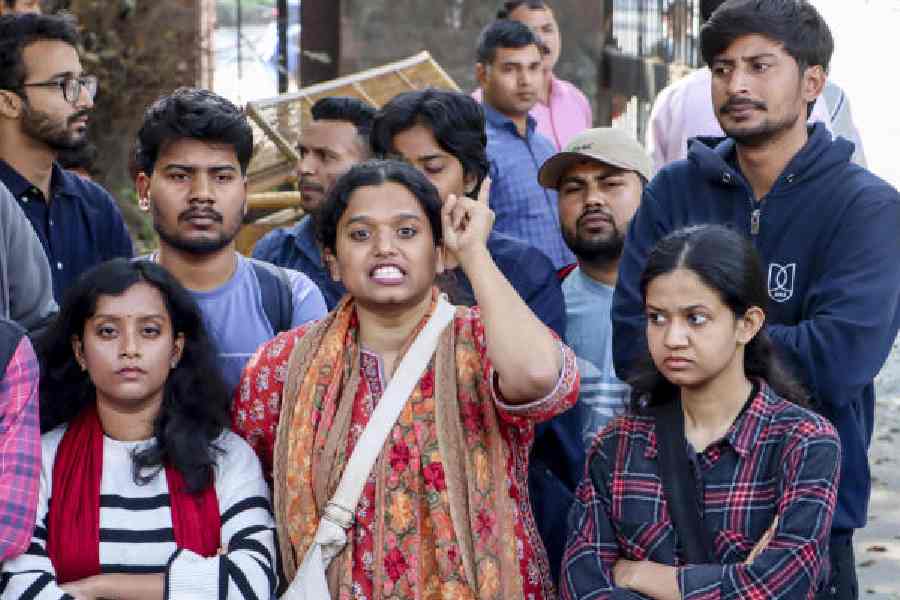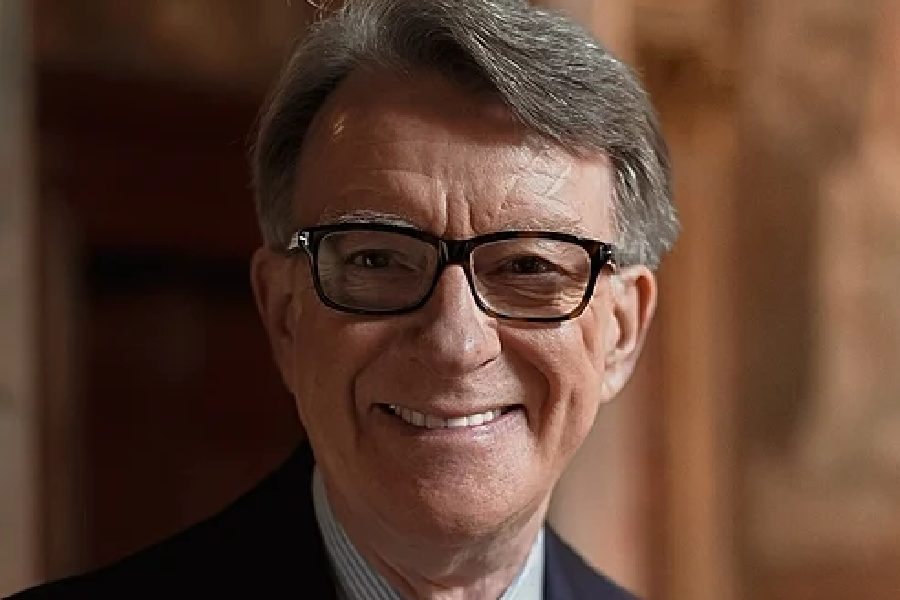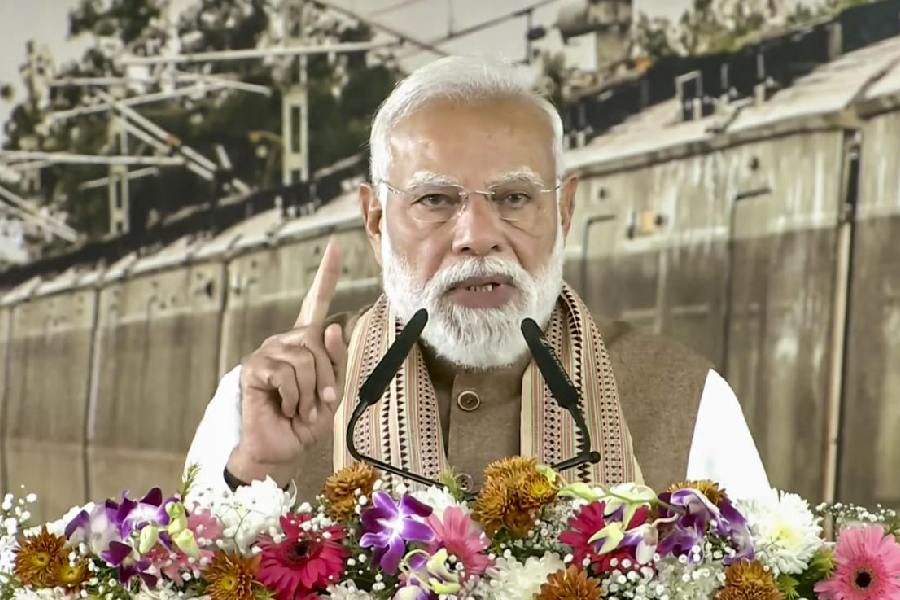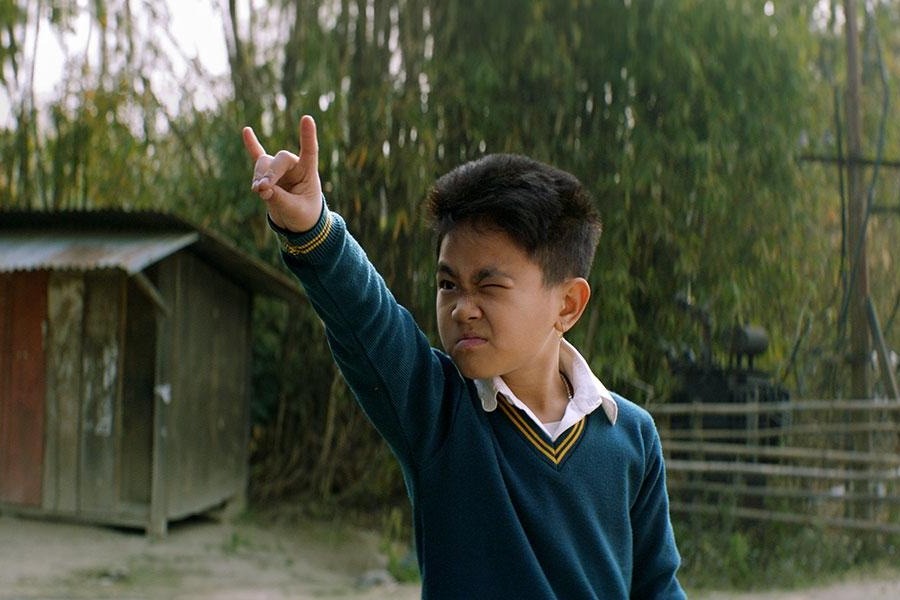Filmmaker Bratya Basu has recently concluded the shoot of Shekor, his upcoming film, starring Chanchal Chowdhury and Seema Biswas. The film spans three generations and is based on two stories by Bibhutibhushan Bandyopadhyay. A t2 chat with the director...
What made you select Bibhutibhushan’s stories for your next film?
To me, Bibhutibhushan is undoubtedly one of the finest writers of fiction in Bengali in the post-Independence era. I am a student of literature, and I can say without hesitation that amongst Manik Bandyopadhyay, Tarashankar Bandyopadhyay and Bibhutibhushan, Bibhutibhushan has always been my favourite. I have staged plays based on his stories in the past and was eager to make a film on his works as well. So I selected two of his stories (Drobomoyeer Kashibaash and Dadu) and adapted them to develop the screenplay of my film.
What sort of changes did you introduce into your adaptation and why?
What I have mainly done is changed the background of the stories to fit them in the contemporary context. So Shekor is set in 2025 and only a thin plotline of the original has remained. Just like a sculptor makes an idol from the rudimentary chaalchitro, so have I developed a new version of the stories from its basic structure. A detailed analysis and comparison of the originals with my script will reveal various other modifications. Viewers of the film, who have read these two stories by Bibhutibhushan, will also be able to spot where and how changes have been made.
The film has been adapted to my time, my cacophony, my society and my reality so that it reflects current phenomena and current topics and hence, makes it more immediate and relevant to the audience. Nevertheless, Shekor retains the defining ideas of humanism and the immutable relationship between nature and humans that is found in Bibhutibhushan’s stories.
Give us some hints about the other themes you intend to explore in it.
Shekor, which is also set in rural Bengal like in Bibhutibhushan’s stories, is about life in its villages and as I said, deals with basic human values and man’s deep connection with nature. The film also talks a bit about politics in Bengal. Most importantly, it talks about the difficult time in which we live. All around the world, we find that our core values and identity as human beings are being challenged every day. This story will attempt to shut out the clutter and cacophony of modern life and help to rekindle and rediscover those virtues that distinguish us as civilised and humane.
Shekor also explores themes of interpersonal relationships, love and romance. It celebrates a traditional way of life where people hold relationships dear and nurture their finer sensibilities. It evokes the memory of a time when relationships were defined by respect, affection, admiration or trust. This film tries to revive these feelings once again in people’s hearts, which have been forgotten or buried somewhere deep down, and from where they need to be awakened.
The title suggests that the film will be about one’s roots…
Yes, exactly. To rediscover our lost or forgotten values, we need to go back to humanity’s roots. In this sense Shekor is a quest to rediscover our humanity by resurrecting traditional values.
You have made thrillers and have also explored the complexities of human relationships in your films. Would you slot Shekor in a completely new category?
Set in the last part of the last century, my last film Hubba, though a thriller, dealt with how anti-socials emerge from the conditions in society. Shekor is also deeply embedded in our society, but I don’t think I have ever made a film about the finer and delicate human emotions and qualities.
Shekor was shot in Bolpur and partly in Varanasi too. What were the challenges you faced shooting in multiple locations and how did you overcome them?
The initial challenge was to find the houses of the main characters and to reconstruct them. Then there was the logistical difficulty of taking the entire cast and crew to these two places and arranging for their stay and also executing the shoot as per schedule and finishing within the stipulated time. We finished shooting in just 14 days and it was an intense and exhausting time for everyone. There were close to 200 people in our team and to get the job done at express speed while coordinating everything and at the same time keeping a cool head, was a tough job indeed.
In Varanasi, we were not able to shoot on the ghats as they were flooded by heavy rains, so we had to change the way we shot those scenes. Other than that I did not face any issue while shooting.
You are also an accomplished stage and screen actor. Do you prefer to act or don the director’s hat or both?
They are totally different kinds of jobs but I enjoy doing both. However, direction is always a greater challenge to me. It is certainly more attractive, though it involves taking on a very huge responsibility. I am lucky that the roles I have acted in recently were all well-received and I could vindicate my directors’ vision in them.
This was your first time working with both Seema Biswas and Chanchal Chowdhury. What was your experience directing these two great actors?
I have followed Seema Biswas’s career since my teenage days. I watched her theatre performance in Karmawali as a member of the National School of Drama Repertory Company. Then of course I have watched her performance in several Hindi movies like Bandit Queen, Khamoshi and many others. So I have a deep admiration for her. The moment I wrote her character in Shekor, I instantly thought of Seemadi, and hoped she would be able to do it. She is not a method actor like Chanchal Chowdhury; she is more emotive and intuitive. I would describe her as a Brechtian actor and Chowdhury as a Stanislavskian actor, as he has a systematic approach to his craft.
What will be the USP of the film?
After a long time, audiences in Bengal will see a true Bengali film which is not a remake of any South Indian film, or copies the Bollywood style of making films. It is a purely Bengali story with a Bengali heart and Bengali emotions. It is a story of the people and for the people of Bengal.
Any message that you think Shekor may convey to the audience?
If anything, this film says that our identity as human beings is defined by the humane qualities of love, generosity and kindness, not religion, race or nationality.
What is next on the creative horizon for you?
I am planning on doing a theatre production next, but before that I am working on two scripts for films, one of which will go on the floors after Durga Puja of 2026.

